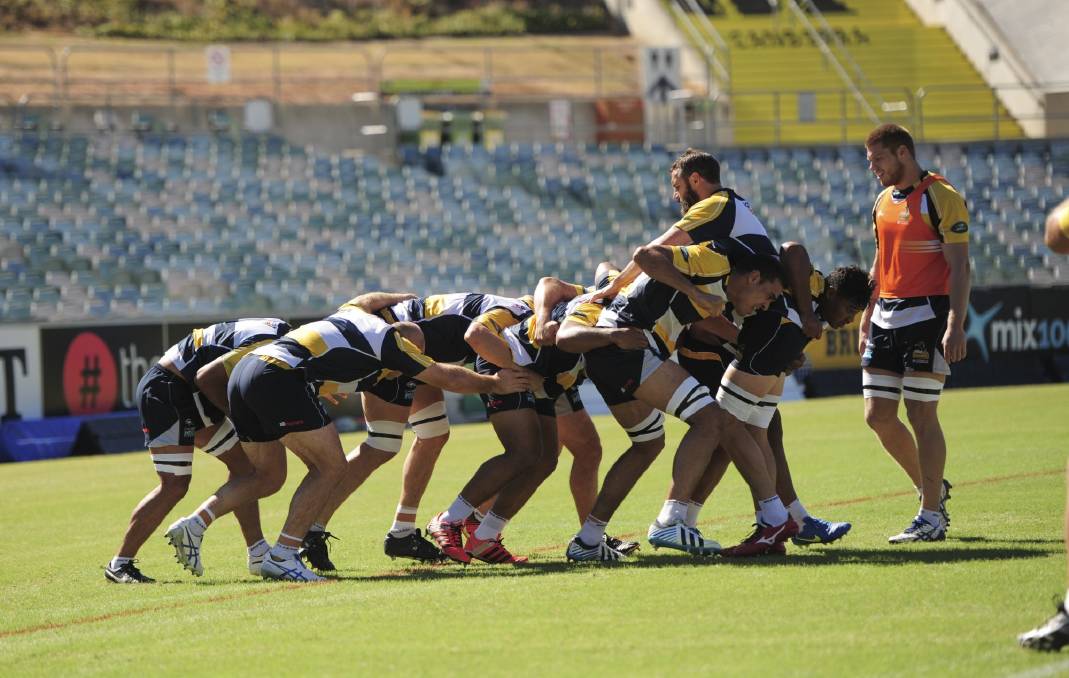
The 2010 Super 14 season started in February and finished on May 29. Each team played 13 rounds robin series against other teams, which resulted in three and half years of match play. This year's schedule had a record number and quality of referees. Merit Panel referees refereed at least eighty% of the games.
Performance evaluation studies used various indicators to measure performance. They included turnovers and points scored, tackles made, tackles made, kicks from the hand and tries. These indicators were examined in both offensive and defense situations. However, the majority focused on only attacking variables.
Some studies showed that winning teams were less likely to be tackled. This could be because of rule changes that favor a defensive side in breakdown situations. Other factors that were more crucial in determining success included higher average carry metres and lineout success on the opposition ball.

Some studies found that point scoring was not related to the outcome of matches. These were however based on data from lower levels competitions and didn't include information on team behaviour or multiple confounding factor. It is difficult for us to see a correlation between point scoring and performance or draw any conclusions about the importance of it in rugby.
Another study looked into the relationship between performance levels and tackle contest events. These are measures for defence. This indicated that tackles completed were more likely to be successful for the winner. Although some studies did not find conclusive results, they were able to establish a positive correlation between turnovers and points scored.
K-modes cluster analytics was used to identify playing patterns like plays that follow lineouts or scrums. These patterns emerged from the physical constraints of the game, as well as self-organising interactions between players.
Pretoria's Bulls have been the most consistent tournament team. They have won 14 consecutive home matches and are unbeaten since 2012, when they won the title. Their forwards can be quick and powerful, and they are capable of burning wide. Despite their track record, however, Bulls haven’t lived up to their potential and aren’t the team to save a slump at the altitude.

The Hurricanes are a formidable side, but they still haven't shown their full potential. Nevertheless, they will lose in Christchurch. However, they will have All Blacks centre Conrad Smith back and test halfback PiriWeepu back. This combination is strong.
The Cheetahs have a solid team but must overcome the loss to star forward Heinrich Brussouw. Juan Smith is their coach and they haven't been as popular as the Stormers. Nonetheless, they've been better in recent years, and should beat the Sharks.
Although the Waratahs can be a strong side on their day they are looking for a win with bonus points. That will guarantee them a place in semi-finals.
FAQ
Is extreme sport expensive equipment?
Yes. Extreme sports equipment can run into the thousands. But people who participate in these activities don't need much money.
What are the benefits of extreme sports?
Participating in extreme sport has many health advantages. Here are some:
-
Exercise helps you stay healthy. Exercise helps you lose calories. And this burns fat. So you look better.
-
Extreme sports help build self-confidence. Extreme sports can make people feel better about themselves.
-
Extreme sports can be fun. You feel free and have lots of energy.
-
Extreme sports offer adventure. What could be better than experiencing something new? You never know what you are going to experience.
-
Extreme sports are safe. You'll always be safe no matter what sport you choose.
-
Extreme sports are dangerous. Most extreme sports are safe if done correctly.
-
Extreme sports are great for relaxation. You can relax best by doing something you love.
-
Extreme sports help build character. Extreme sports help you develop discipline, courage, and perseverance. These are vital for daily life.
-
Extreme sports can help you to become more powerful. The majority of extreme sports involve some form of physical activity. This gives you strength and endurance.
-
Extreme sports promote fitness. Everyone should be able to exercise. It improves your quality of life.
-
Extreme Sports is a great way to have fun. If you're looking for a great way to spend time with friends, family, or even yourself, consider participating in extreme sports.
What skills are required for extreme sports?
Practice every day in order for you to excel at any extreme sport.
Learning new moves and tricks is part of practicing. You will improve your performance by doing this.
You must also master basic safety rules before trying anything new.
Protective gear, such as helmets, should be worn at all times. You must keep in the sight of others.
Stunts should not be performed without a spotter. During your stunt, a spotter will be there to watch over you.
What makes parasailing different to parachuting?
Para-gliding involves using a harness that is attached to a small sailing sail to fly above the earth. The harness allows for you to fly. It helps you stay safe as you fall through air.
You don't need any equipment to fly. You simply attach yourself to the sail. Then, you can take off. The sail will be pushed against the wind as you ascend in altitude. This allows it to lift you.
As you glide along the ground, you keep moving forward. Your momentum will propel you forward until the cable ends. You then release your grip to fall back to the ground.
If you're ready, reattach your sail.
Parasailing continues to grow at a rapid pace. In 2013, parasailing was enjoyed by more than 1 million people. This is nearly double the amount who did it in 2008.
What happens if someone is trying extreme sports but falls off a mountain?
Extreme sports involve falling off cliffs. You might break bones or even fracture your neck.
This injury would be very serious. You could die if you fall from a height greater than 30 meters (100 feet).
Statistics
- Boxing— 90% of boxers suffer brain damage over their careers, and this is not surprising in the least, considering that they are throwing punches at each other's heads. (rosenfeldinjurylawyers.com)
- Based on the degree of difficulty, the routine is scored on form and technique (50 percent), takeoff and height (20 percent), and landing (30 percent). (britannica.com)
- Nearly 30% of all boardsailors live in the South, and more than 55% of all boardsailors live in cities with a population of more than two million people (momsteam.com)
- Overall participation has grown by more than 60% since 1998 - from 5.9 million in 1998 to 9.6 million in 2004 Artificial Wall Climbing. (momsteam.com)
- Nearly 40% of all mountain bikers have at least graduated from college. (momsteam.com)
External Links
How To
How can you learn parkour skills
Parkour is a running technique that allows people to run over obstacles like walls, buildings, fences and trees. It's one of the most popular sports in the world, with millions of participants around the globe. Parkour can be done in many ways, including freestyle, wall climbing and obstacle courses, urban exploration, rescue, freerunning and urban combat.
You can define fitness as any activity that improves your physical fitness or overall health. This could include going to the gym, exercising cardio, or simply walking. Parkour can be considered a sport, as it requires parkour athletes to use their strength, speed and coordination.
Here are some tips for parkour beginners:
-
Choose a place with no stairs or places that could cause injury. Flat ground is the best option. Avoid hills.
-
Shoes made from leather or rubber are the best type of footwear. Try them all to find the one that feels right for you. The right shoes can make a parkour session or not.
-
Bring water bottles and snacks to keep yourself hydrated during practice sessions.
-
Warm up before starting any parkour sessions. This means you should warm up your muscles before jumping into the action. You can start slow and increase the intensity gradually until your muscles are fully prepared.
-
Don't put too much emphasis on your arms or legs when you jump. Instead, focus more on using your core and back muscles to get over obstacles.
-
Don't push yourself too hard; instead, take breaks every now and then. This will allow you to rest and recover after a workout, without getting hurt.
-
Parkour can be enjoyed while you listen to music. Music helps you relax, concentrate better, and makes it easier to focus.
-
Stretch your muscles to prevent any injuries after each session.
-
When you are exercising in public, make sure to keep your hands clean. You won't endanger another person by doing this.
-
Keep track of your progress and keep a record of it in a notebook. This will allow you to keep track of your strengths and weak points.
-
Remember, parkour is intended to be fun. Enjoy the journey and don't let fear of falling stop you from enjoying it. If you fall, pick yourself up and move on.
-
Everyday, you learn new tricks and techniques.
-
Healthy food is important. Consuming a high-protein diet will allow you to gain muscle mass more quickly.
-
Find a mentor. Mentors teach you how certain moves are made and also offer guidance on improving your skills.
-
Ask questions! The people who love to share their knowledge with others are always happy to answer questions.
-
Practice makes perfect. You can train whenever you want.
-
Have fun
-
Last but certainly not least, keep safe!